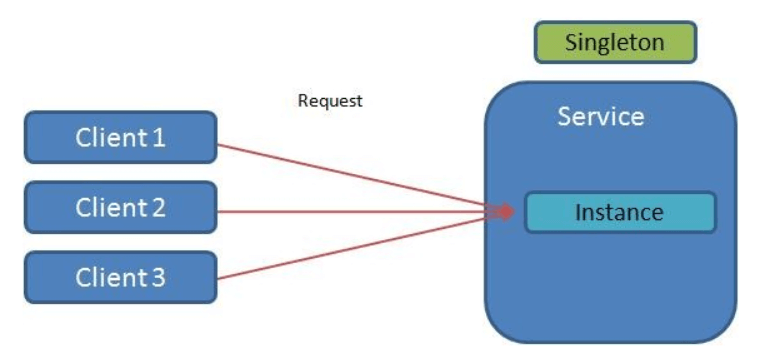The Singleton pattern is used in software projects when you need to ensure that there is only one instance of a class in the entire application and that it can be accessed from anywhere in the codebase.

Here are some scenarios where the Singleton pattern might be appropriate:
- Resource management: When you have a shared resource, such as a database connection or a file, that needs to be accessed by multiple parts of your application, you can use a Singleton to manage access to that resource.
- Configuration settings: When you have global configuration settings that need to be accessed by various parts of your application, a Singleton can provide a central location for storing and accessing those settings.
- Logging: When you have a logging mechanism that needs to be accessed by various parts of your application, you can use a Singleton to manage the logging instance and ensure that all log messages are written to a single log file.
- Caching: When you have a caching mechanism that needs to be accessed by various parts of your application, a Singleton can be used to manage the cache and ensure that all cached data is stored in a single location.
It’s important to note that the Singleton pattern should be used judiciously and only when truly necessary. Overuse of Singletons can make code hard to test, maintain, and scale, and can lead to tight coupling and hidden dependencies between different parts of the application.
The Singleton pattern can be implemented using
- A private constructor
- A private static instance of the class
- A public static method that returns the instance of the class.
Here’s an example implementation:
public class Singleton
{
private static Singleton instance;
// Private constructor to prevent the creation of instances outside the class
private Singleton() {}
// Public static method to access the Singleton instance
public static Singleton Instance
{
get
{
// Lazy initialization: create the instance only when it's needed
if (instance == null)
{
instance = new Singleton();
}
return instance;
}
}
}
StudySection gives an opportunity to beginners and experts in .NET framework to go through StudySection’s .NET Certification Exam and get a .NET certification for enhancement of career in programming. If you have knowledge of the .NET framework then you can get a certificate through an online exam at StudySection.




